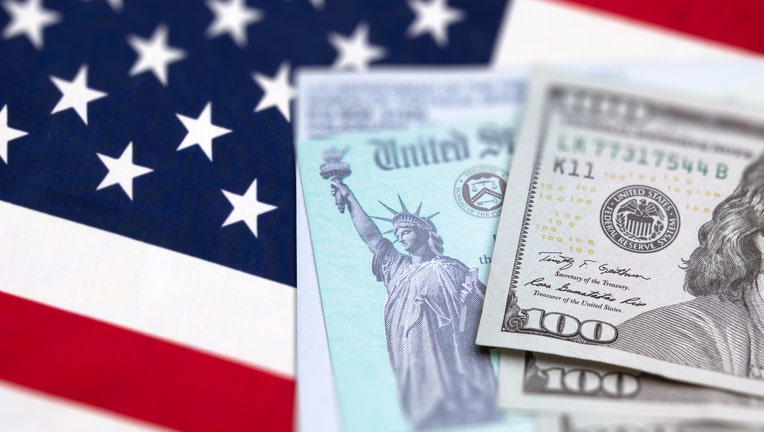IRS delivers another batch of $1,400 stimulus checks: Here's who received them

You have financial options to stay afloat even if you aren’t getting a stimulus check. (iStock)
The IRS will issue an eighth batch of stimulus checks this week, delivering payments to another 1.1 million Americans as part of President Biden's $1.9 trillion American Rescue Plan.
The agency said Wednesday that it has disbursed about 164 million payments, worth roughly $386 billion, in the span of about seven weeks.
The latest round, worth more than $2 billion, went to 585,000 individuals who had recently filed a 2020 tax return. The government has urged Americans who do not receive federal benefits nor typically file tax returns to submit one this year in order to provide the IRS with their payment information and receive their stimulus cash.
The IRS also sent 570,000 supplemental "plus-up" payments to taxpayers who were owed more money based on their 2020 tax returns. Americans may be entitled to a bigger payment if they lost their jobs, or saw their income reduced, last year as a result of the pandemic. That also includes individuals who had a child in 2020.
The checks began processing last Friday and have an official payment date of May 5, although some taxpayers may receive the direct deposits earlier than that. The IRS sent 600,000 direct deposit payments. The remainder were paper checks.
If you haven't received your payment yet, you can check its status using the IRS' Get My Payment tool.
The cash payments included in Biden's stimulus bill are the largest yet, with some Americans eligible to receive up to $1,400. But like the previous rounds of checks — worth a respective $1,200 and $600 — some people will be excluded from getting the money.
Under the legislation, individuals with an adjusted gross income of $75,000 or less and couples with an adjusted gross income of $150,000 or less are eligible to receive a one-time payment of $1,400.
Americans who earn more than the threshold line will still receive a partial check. But payments are cut off for individuals who earn $80,000 a year or more and couples who earn $160,000 a year or more. For those filing as head of household, the phaseout begins at $112,500 and tapers off at $120,000.
The checks are directly tied to your latest processed tax returns, either from 2020 or 2019.
If you didn't qualify for the latest round of checks based on 2019, but you do qualify now, you should file your taxes as soon as possible, even though the IRS extended the typical filing deadline from April 15 to May 17.
"The IRS will continue to make Economic Impact Payments on a weekly basis," the agency said. "Ongoing payments will be sent to eligible individuals for whom the IRS previously did not have information to issue a payment but who recently filed a tax return, as well to people who qualify for 'plus-up' payments."
Read more at FOXBusiness.com.

Best Time to Buy: What to buy in May
For a lot of stores, spring means sales. The experts at Consumer Reports break down the top items you can buy at big discounts in the month of May.

